The heart of Pandora’s new office in Midtown Manhattan is a bright, double-height space first visible through a low, compressed entry. This central space provides a physical connection between the two floors via the grand stair on one side and takes advantage of the full height of both floors — about 25 feet — with a large screen made of translucent circular discs, elegantly coupled with figured aluminum hooks backed by a blue theatrical scrim.
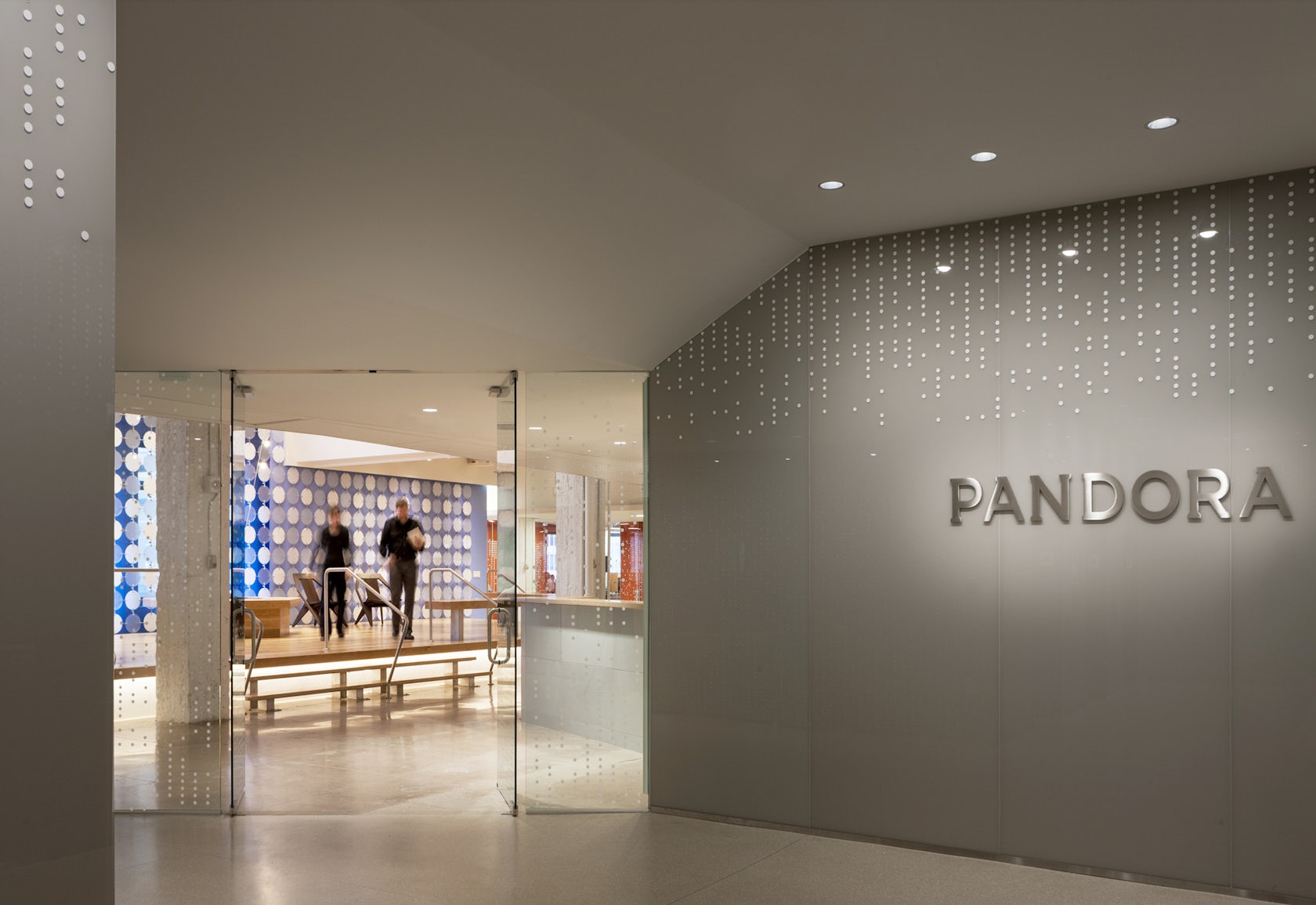
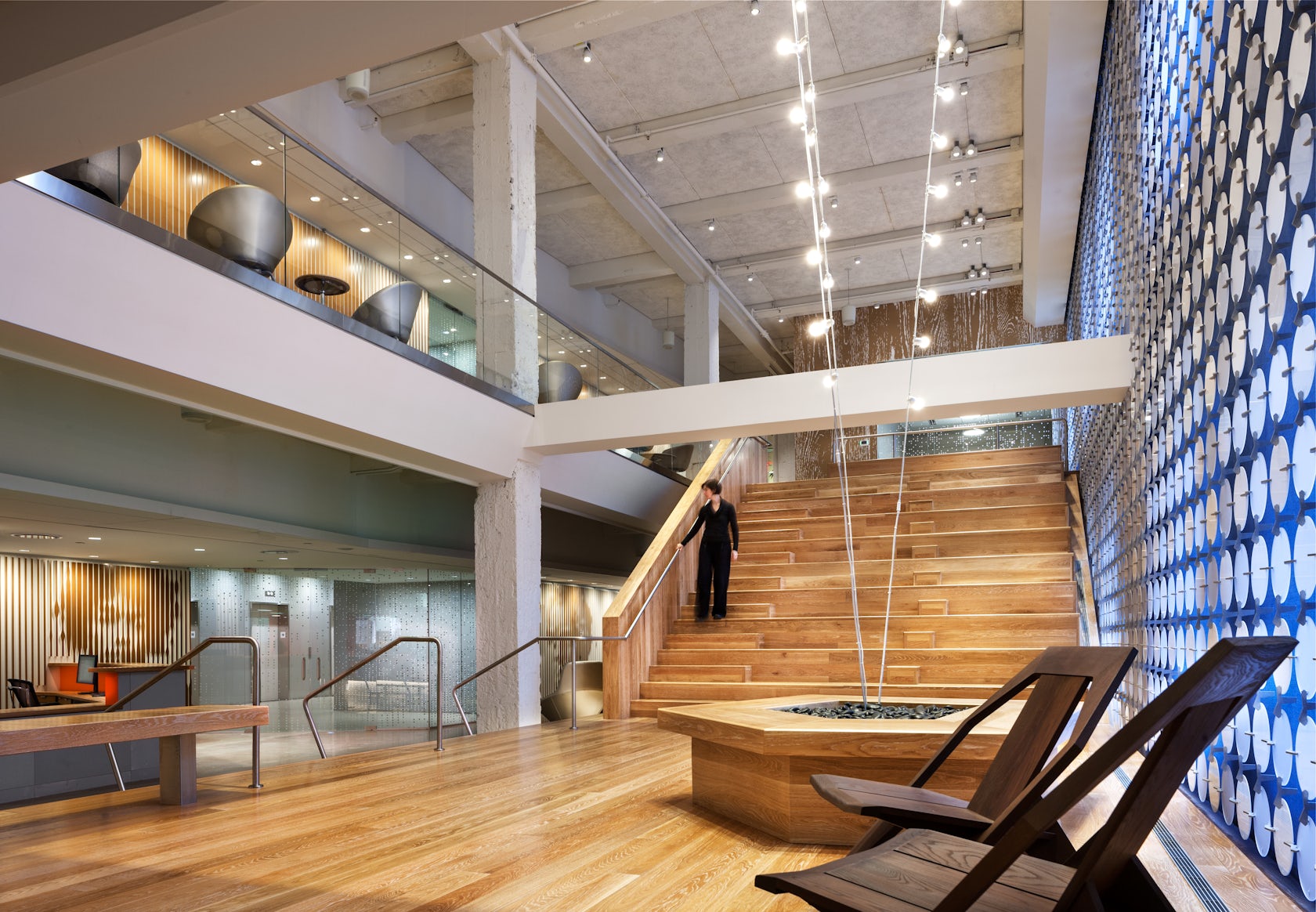
© Durston Saylor
These elements combine to create a screen of an indeterminate scale designed to deliberately obscure the existing architectural elements and create a first impression of grandeur. A large “tree” made of LED bulbs references the marquee lights of music venues and leads the eye upward, suggesting growth. On the north and south sides of the block-long floor plate are the open desk areas, each identified by a color and populated by faceted glass volumes that provide private meeting spaces and small “phone booths” for a relief from the activity of the open areas.
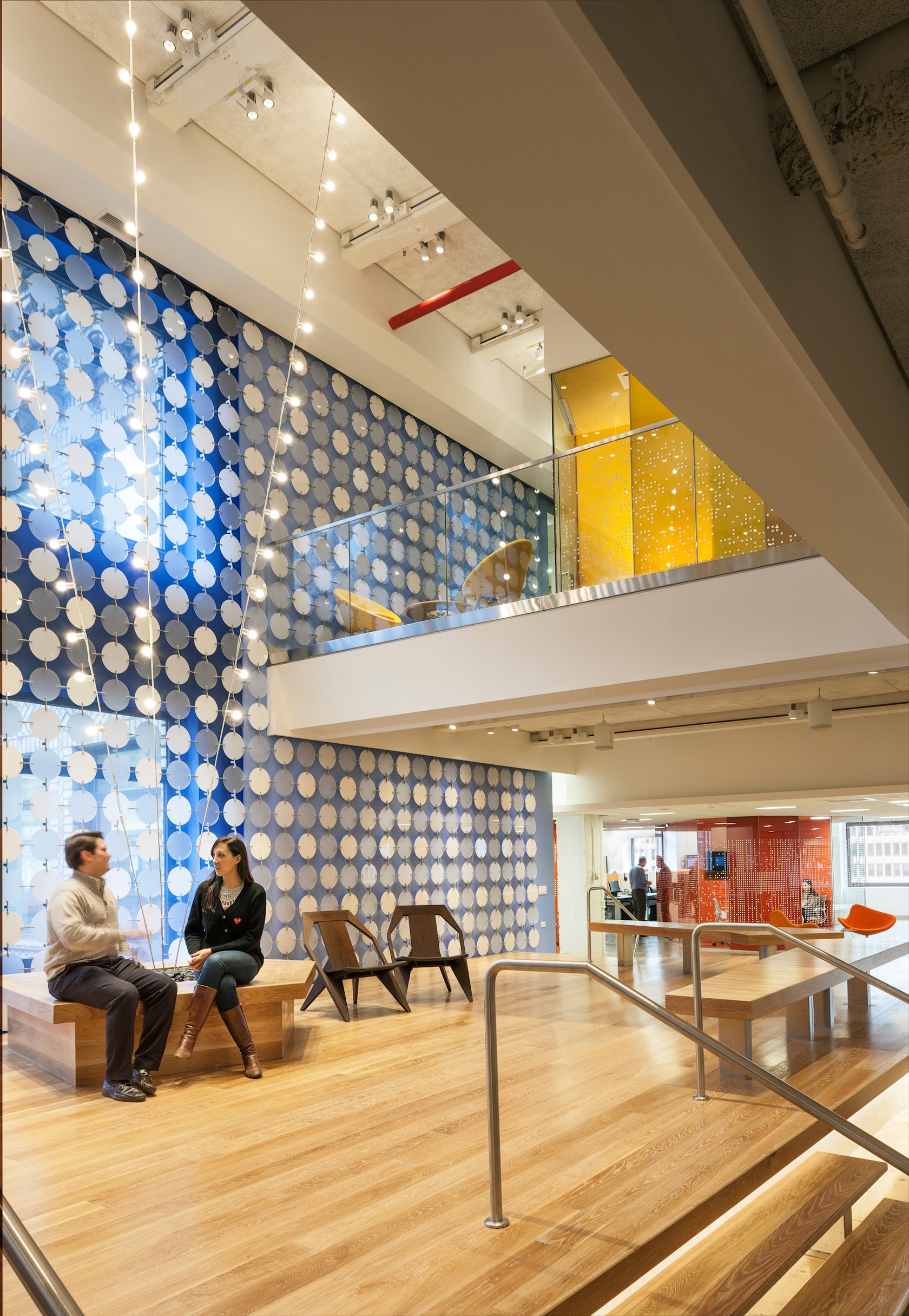
© Durston Saylor

© Durston Saylor
These “crystals” invite multiple paths of movement around them, establishing a sequence of tight and loose spaces that are shaped to encourage casual interaction. The glass is peppered with a dot-matrix graphic pattern that helps define the surface of the volume and also provides different degrees of visual privacy. Each crystal has a unique pattern, formed by super-scale lettering of the name of the meeting room they enclose.
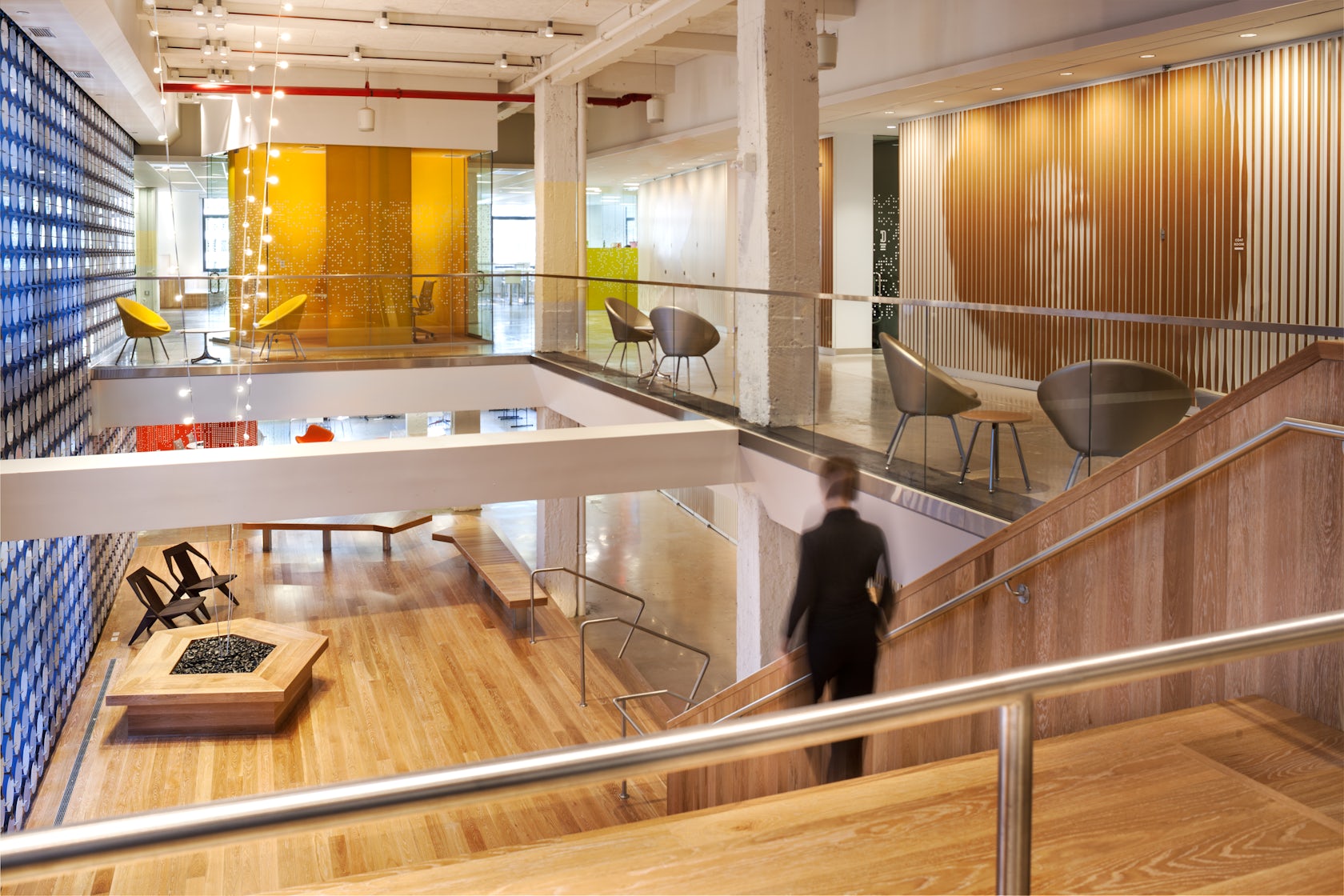
© Durston Saylor
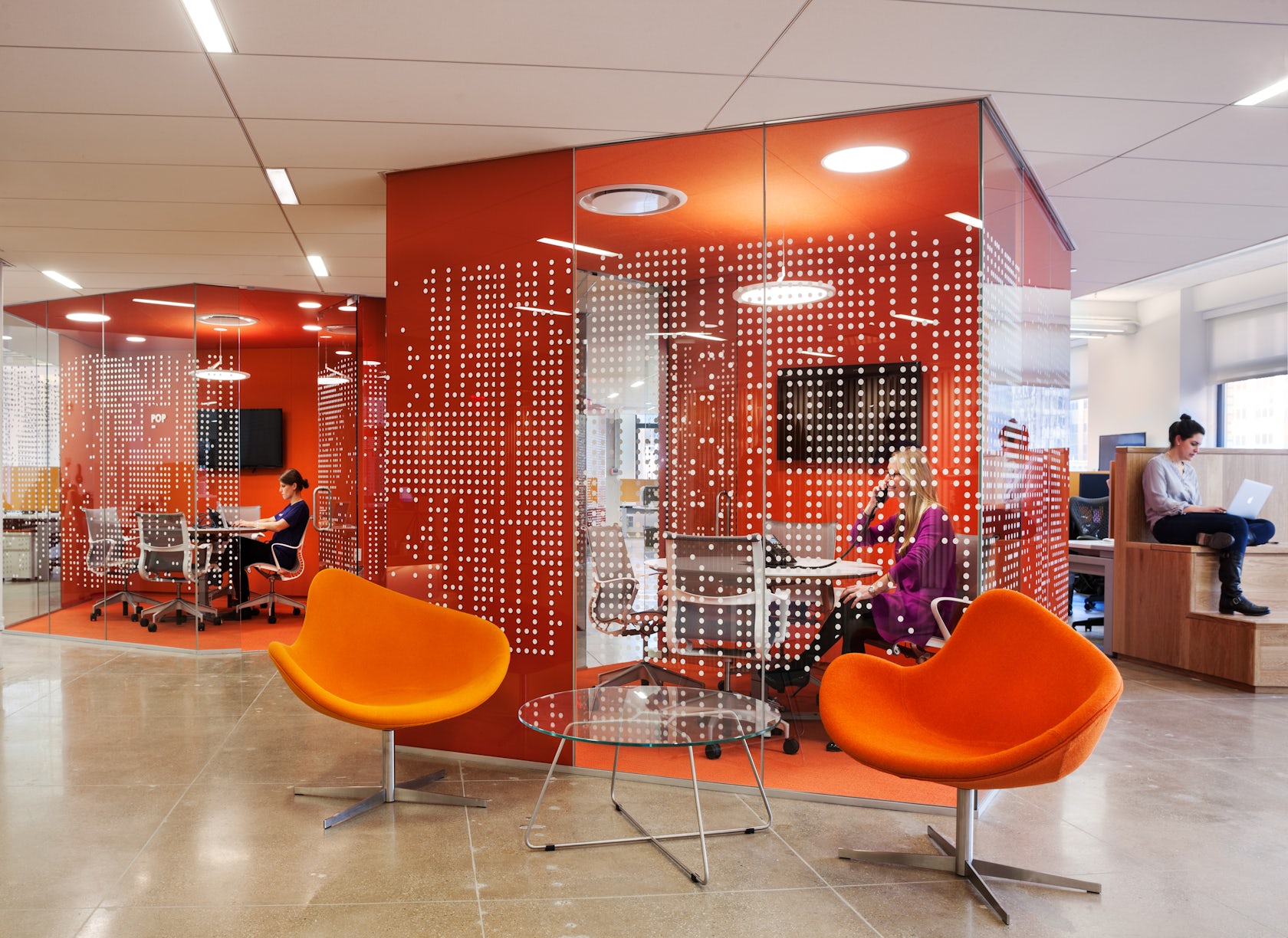
© Durston Saylor
In one corner, the language of the “crystal” is reinterpreted in wood for a special feature — The Pandora Soundstage — an intimate amphitheater-style gathering space able to accommodate up to 65 people for meetings or music performances.
The unruly spaces that make up the “core” of the existing building are organized and concealed behind a millwork wall that features abstracted images of famous musical artists from different periods and genres.

© Durston Saylor
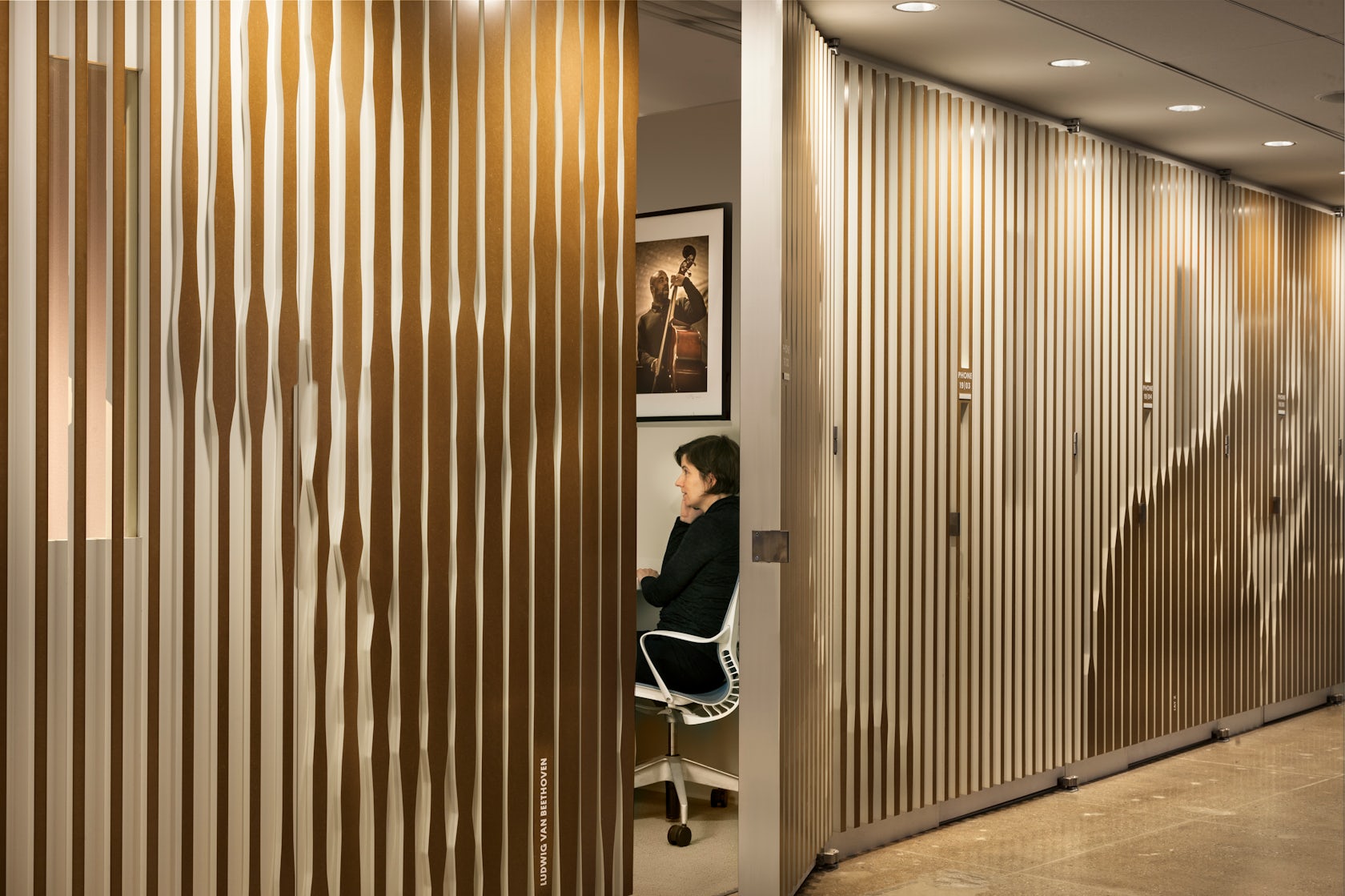
© Durston Saylor
The regular intervals of carefully shaped wood slats reduces each image to vertical stripes of binary information and presents different visual effects depending on the viewer’s perspective and distance. The ability to see both the image, and simultaneously, the way the image can be abstracted into “information” of light and dark, is suggesting a transformation that is part of our digital age.

© Durston Saylor
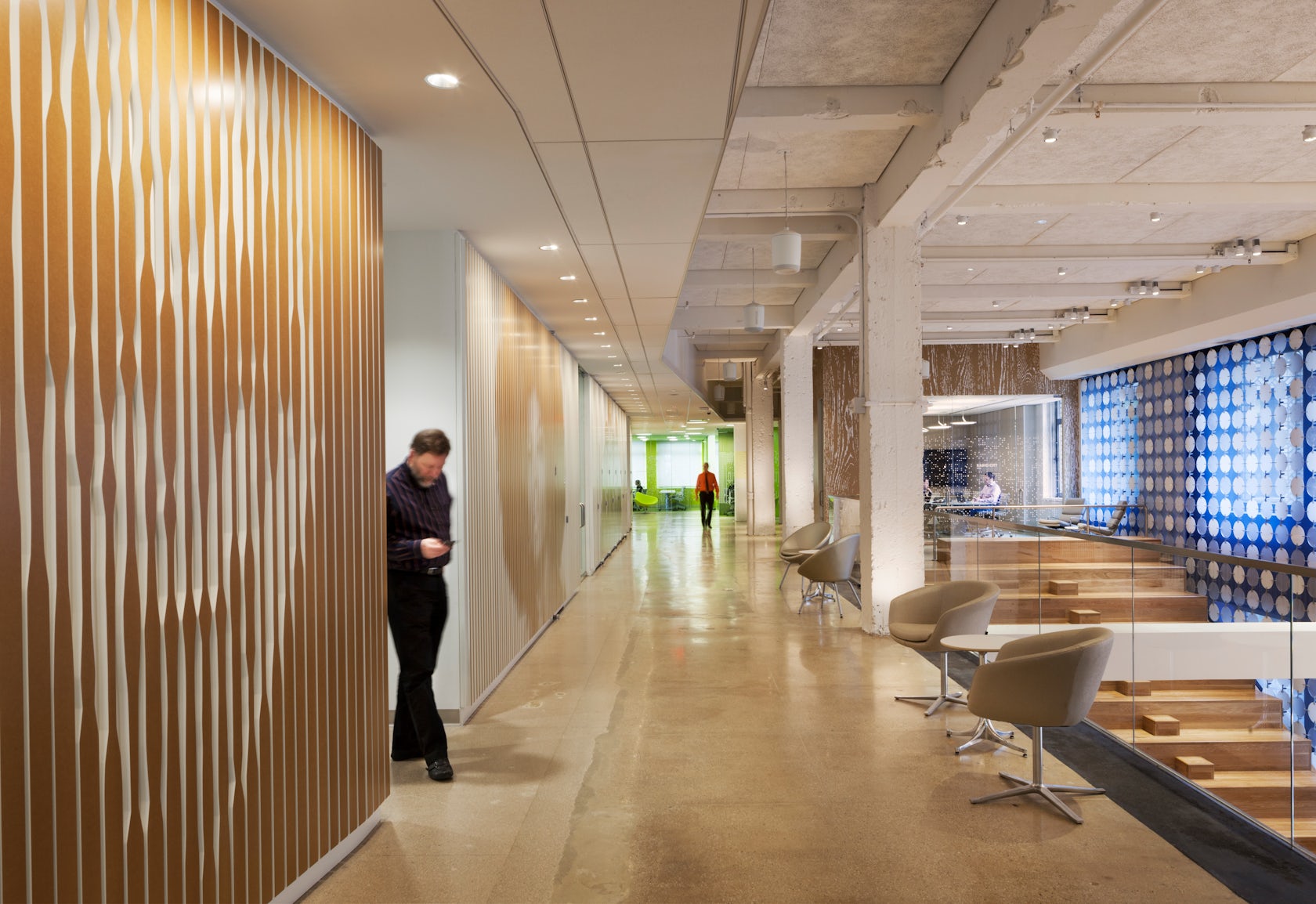
© Durston Saylor
This wall is a tour de force of craftsmanship and also contains the doorways to many rooms, some private phone booths barely visible, and some large doors at the scale of the freight elevator. In developing the material palette, we were united with our client in wanting to expose as much of the historical construction of the existing building as possible.

© Durston Saylor
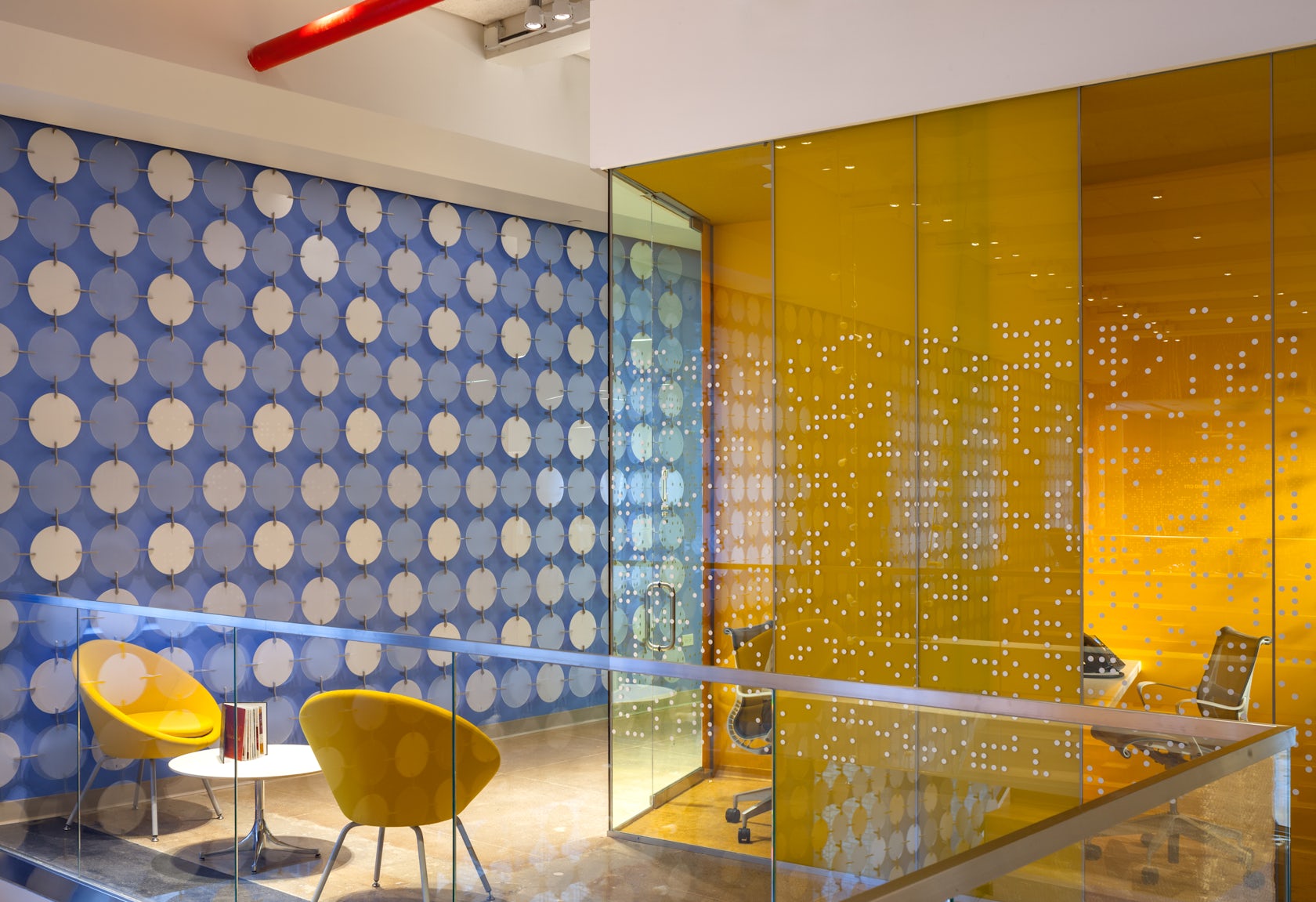
© Durston Saylor
The beams, columns, and floors were all stripped down to reveal their natural state, expressing a richness of textures and tectonics. In contrast, the new glass insertions are sleek and highly finished — glossy, crisp, and carefully detailed. The heavily grained wood platform, stairs, and several smaller wood elements throughout each floor add warmth and serve as a tactile bridge between the smooth glass and rough concrete..
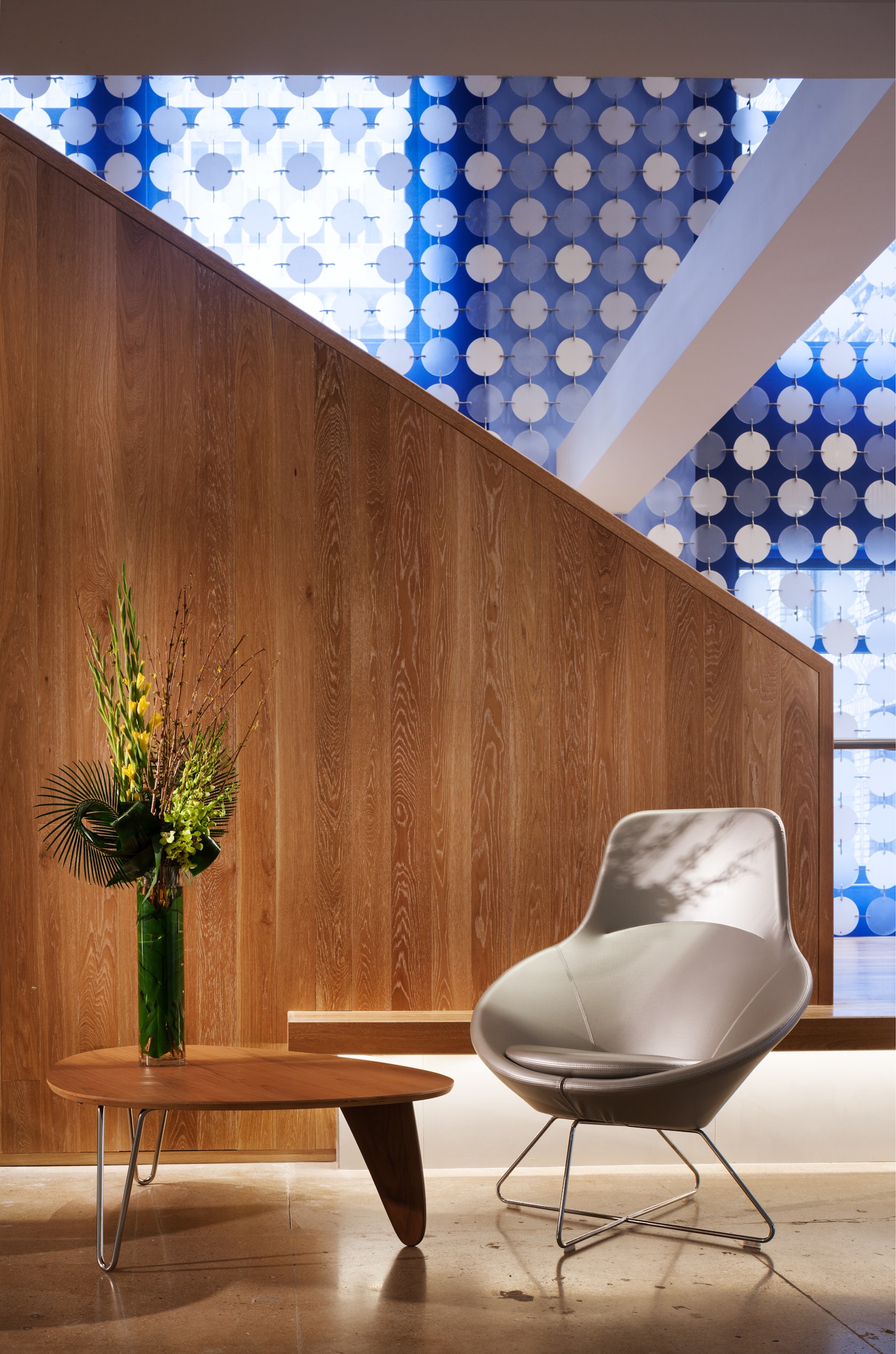
© Durston Saylor

© Durston Saylor


 FORm_office™
FORm_office™  Pandora Media Offices
Pandora Media Offices 


